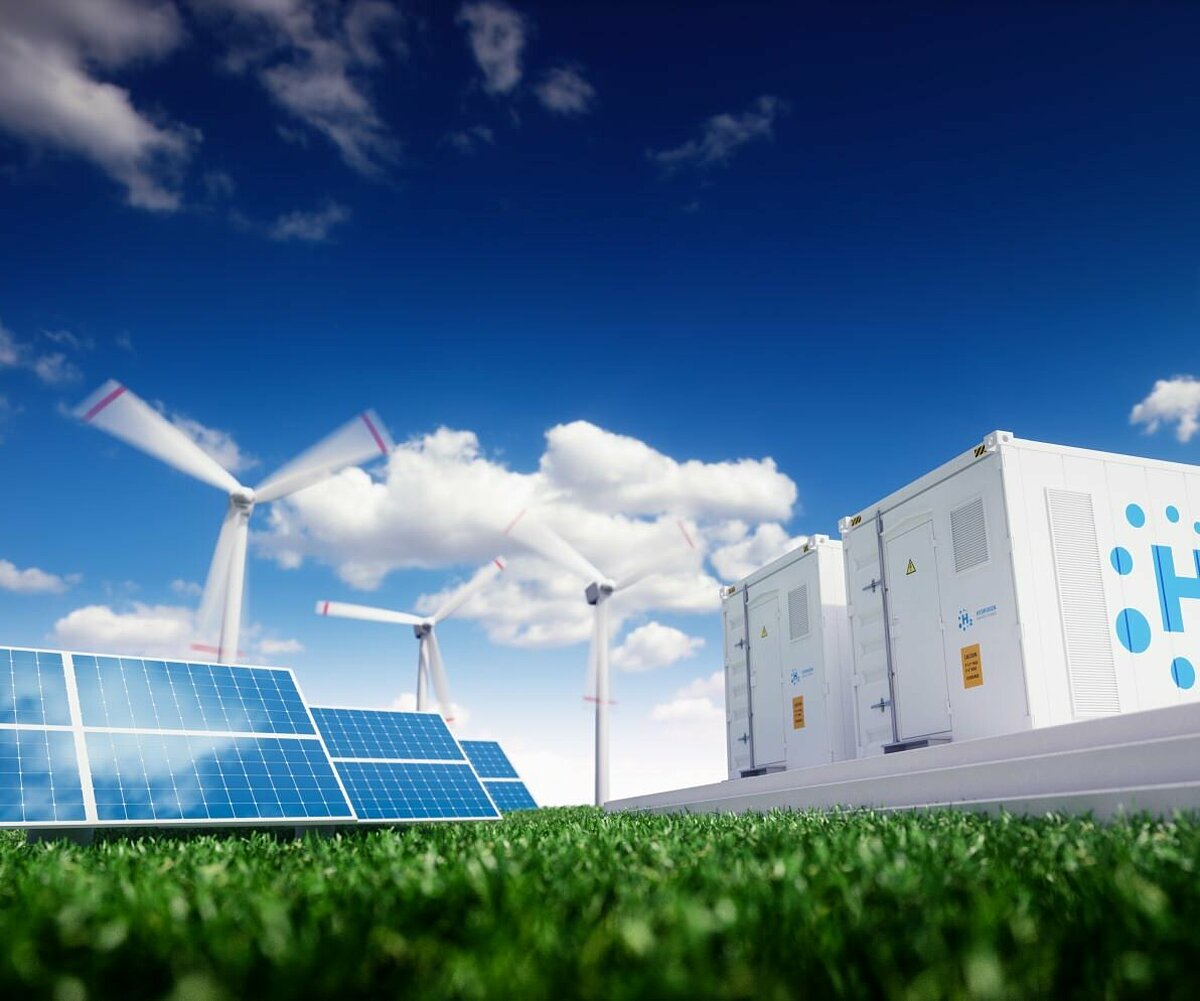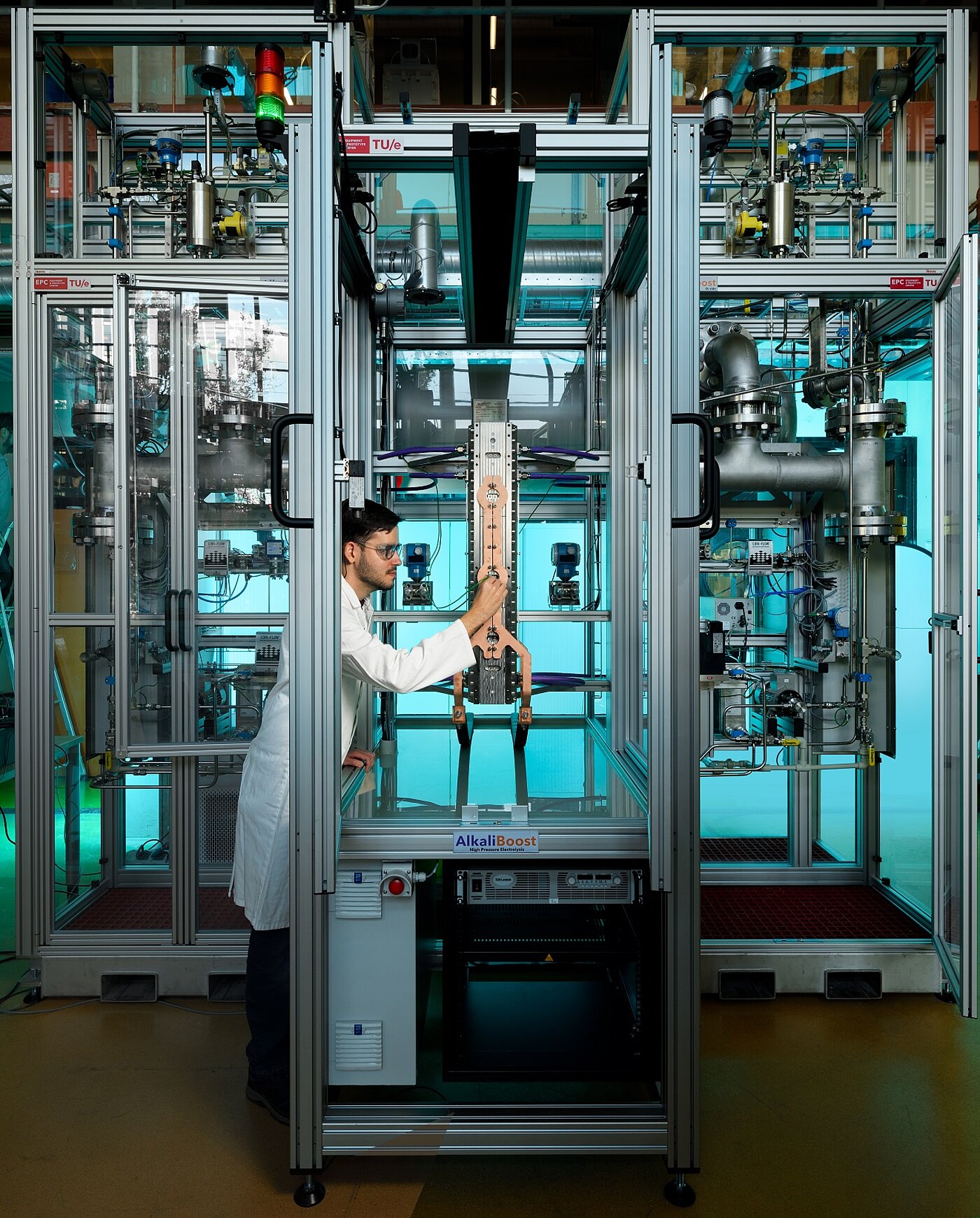12 October 2020
DSM and Lightyear aim to design solar roofs for all types of electric vehicles
- Mobility

To develop and promote hydrogen technology with Dutch companies, the collaborating parties in the HyScaling project have set clear goals. One of them is, that electrolysers have to be developed that perform better to produce green hydrogen. In addition, the production must also be more efficient and cheaper. The consortium wants to develop a good production chain for this. If all goes well, Dutch industry will be able to realize five gigawatts of electrolysis capacity for green hydrogen production by 2030, thanks in part to the RVO MOOI 2020 project HyScaling. This hydrogen will then also be 25 to 30% cheaper.

Given the climate targets and circularity challenge, Dutch industry must switch from fossil to sustainable energy. How can this be done? One of the possibilities is the use of hydrogen, produced with sustainably generated electricity in electrolyzers. These are systems that split water (H2O) into oxygen (02) and hydrogen gas (H2).
Apart from a climate challenge that requires high investments, this is also a great opportunity for the Dutch manufacturing industry. The expectation is that the European electrolyzer market could reach an annual turnover of one billion euros by 2030. This market size is due to the European ambition to have 40 gigawatts of installed capacity by that year. One gigawatt is one million kilowatts, enough to supply a million households with electricity. HyScaling aims to capitalize on this market perspective and to offer the Dutch high-tech industry a key position in that market.
The basis is there. The Netherlands has an extensive network for the distribution and underground storage of (hydrogen) gas. We are going to generate a lot of electricity in large wind farms at sea, while large-scale process industry is located close by on land. These industry companies can use the electricity generated to produce hydrogen. Decentralized clean energy hubs are also important, where sustainable energy can be linked to the local energy system with hydrogen as an energy buffer and product for various applications. Moreover, we have a very strong high-tech industry that can build the necessary electrolyzers.

Cost reductions in all links of the production chain are already significantly improving the competitive position of green hydrogen. But the efficiency of conversion must improve even further. The production costs of the electrolyzers must be reduced even more. Subsequently, the robustness of the 'stacks' - stacked electrolysis cells as part of an electrolyzer - must be improved.
If this can be done successfully, the Netherlands will have a formula for success. Then large-scale production of electrolyzers for domestic use as well as exports can be set-up. This is exactly what the HyScaling consortium of the Institute for Sustainable Process Technology (ISPT) and TNO with industry partners intends to do within a cohesive program.
"We are going to produce electrolysers with more efficient conversion and more robust stacks at lower cost."
Andreas ten Cate, program director system integration ISPT
"Last year we formed a strong consortium with start-up and SME manufacturing companies and large industrial end-users. In this ecosystem we will now innovate together."
Lennart van der Burg - program manager green hydrogen TNO
The Hyscaling project is based on intensive collaboration. It consists of a very diverse, strong consortium of large companies, SMEs and start-ups with their own innovations. It stems from various Dutch regions, and from Germany and Belgium. The consortium has everything it takes to scale up unique knowledge and technology and bring it to the market.
The consortium consists of Teijin, MXPolymers, VDL Energy Systems, Veco, MTSA, TU/e, Brainport Development, BOM, SALD b.v., Hauzer, Ionbond, TU Delft, TNO, Zero Emission Fuels (ZEF), Delft IMP, Hydron Energy, Frames, Magneto, VSL, FME, TNO, DotX Control Solutions, Danieli Corus, Greenberg Traurig, Institute for Sustainable Process Technology, Hanze Hogeschool-EnTranCe, VONK, Fraunhofer IPT and Borit.
Hyscaling is part of the Hydrohub Innovation Program of the Institute for Sustainable Process Industry. More information on the Hyscaling project: HyScaling - Establishing a Dutch electrolyzer industry | ISPT